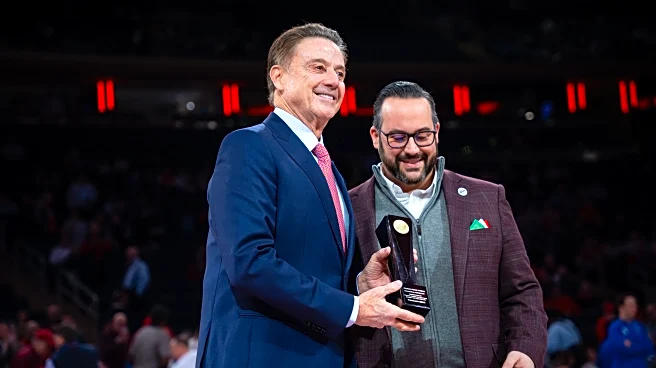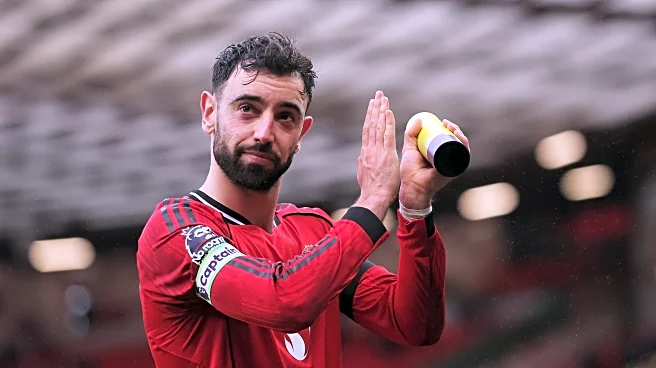What's Happening?
David Forst, the general manager of the Athletics, has been granted a new contract extending his tenure through 2026. Forst, who has been with the organization since 2000 and served as GM since 2015, will continue to lead the team as it navigates significant changes, including a planned relocation to Las Vegas in 2028. The Athletics recently completed their first season in West Sacramento, California, finishing with a record of 76-86, an improvement from their previous season in Oakland. Despite challenges such as small crowds and fan protests, Forst remains optimistic about the team's future, emphasizing the importance of securing long-term contracts for players as part of their strategy.
Why It's Important?
The extension of David Forst's contract is crucial for the Athletics as they undergo a period of transition. His leadership is expected to provide stability and continuity as the team prepares for its move to Las Vegas. This decision reflects the organization's commitment to building a competitive team despite financial constraints. The relocation and restructuring efforts are significant for the franchise, impacting fans, players, and the broader MLB landscape. Forst's experience and strategic approach, rooted in the 'Moneyball' analytics movement, are seen as vital for navigating these changes and ensuring the team's success in the coming years.
What's Next?
As the Athletics prepare for their relocation to Las Vegas, Forst will focus on strengthening the team's foundation through strategic player contracts and development. The organization will continue to engage with fans and stakeholders to address concerns about the move and maintain support. The next few seasons will be critical in setting the stage for the team's future in Las Vegas, with Forst playing a key role in shaping the Athletics' trajectory. The team's performance and management decisions will be closely watched by fans and analysts as they adapt to new challenges and opportunities.
Beyond the Headlines
The Athletics' relocation and management strategies highlight broader issues in professional sports, such as the impact of financial constraints on team operations and fan engagement. The move to Las Vegas represents a significant shift in the franchise's identity and market presence, raising questions about the long-term implications for the team's culture and community ties. Forst's approach to player contracts and team building may influence other franchises facing similar challenges, underscoring the importance of innovative management in sports.












